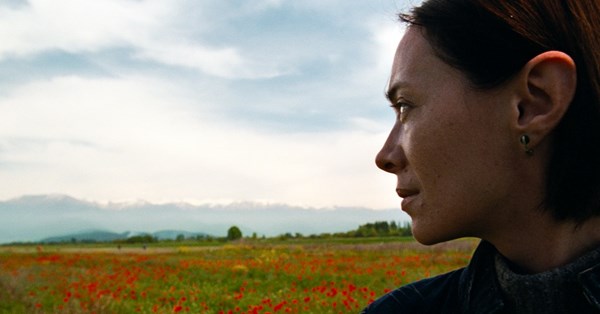BY NAMING a film April (Cert. 15), the Georgian director Dea Kulumbegashvili has arguably acknowledged that it is the usual month for ideas of death and resurrection to dominate.
Nina (Ia Sukhitashvili), a highly experienced, principled obstetrician lives in an ostensibly religious part of rural Georgia. When a neonate dies, the father accuses her of murder, demanding that she be suspended. For Nina, work is everything.
After maternity duties, she drives into the countryside, assisting girls with gynaecological issues. One must guess at how this wounded healer, emotionally withdrawn, is feeling. Perhaps it is despair in delivering unwanted babies to women frequently regarded as merely reproductive machines. Many are illiterate, without independent economic means, while subject to sexual and domestic abuse. She offers contraceptive help to patients and secretly performs unregistered abortions at odds with social norms. One mother, exhausted by childbirth and family demands, still refuses any pills. It is God, not herself, who determines how many times she becomes pregnant, she says.
In a country where 86 per cent are Orthodox Church members, it is tempting to attribute this outlook to Christian teaching, but such attitudes go back much further. Kulumbegashvili spends considerable time examining those primordial forces of nature which, despite humanity’s veneer of civilisation, dig deeply into our psyches and shape our existence. Several long-held shots reminiscent of her mentor, Carlos Reygadas (Battle in Heaven, Silent Light (Arts, 7 May 2008)), include recording a storm of biblical dimensions. We gaze in awe and wonder, powerless to avoid or subjugate it. Lest we forget, we are beholden to a world charged with the grandeur of God, both terrifying and yet beautiful.
Nina mentions her sister being stuck in the mud of a lake. Frozen with fear, she felt unable to rescue her or to seek help. In adult life, it seems that her heart is set on preventing such dilemmas’ recurring. Thus, in her quiet way, she pulls patients out of the mud.
The film runs the danger of being pigeonholed as a pro-abortion polemic when it is, in fact, a meditation on the space or emptiness between people. How, as e.e. cummings asks, can humans lifted from the no of all nothing live in doubt? There are so many opportunities to grasp. Nina herself is almost always situated on the edge of the frame, marginalised by patriarchy and self-loathing. Interspersed between scenes of human endeavour and unrefined nature, there is the puzzling figure of a naked ill-formed woman (maybe emerging from primordial mud) who is yet to become fully alive. It may represent Nina’s comfortless soul struggling to emerge from the gloom of Arseni Khachaturan’s eerily beautiful cinematography.
It’s clear, however, that current female subjugation impedes its flourishing. April continues to explore themes that the director examined in her debut film Beginning (Arts, 19 February 2021). In that, the wife (Ia Sukhitashvili, again) of a Jehovah’s Witnesses leader questions the part that religion can play in subordinating women and leading to a death-dealing existence. Hope in the new movie lies in wait for us. Nina’s supervisor suggests: “Perhaps God sends us hardships so we learn to overcome despair.” Resurrection occurs when characters are able to be lifted out of the mud and born anew.

















